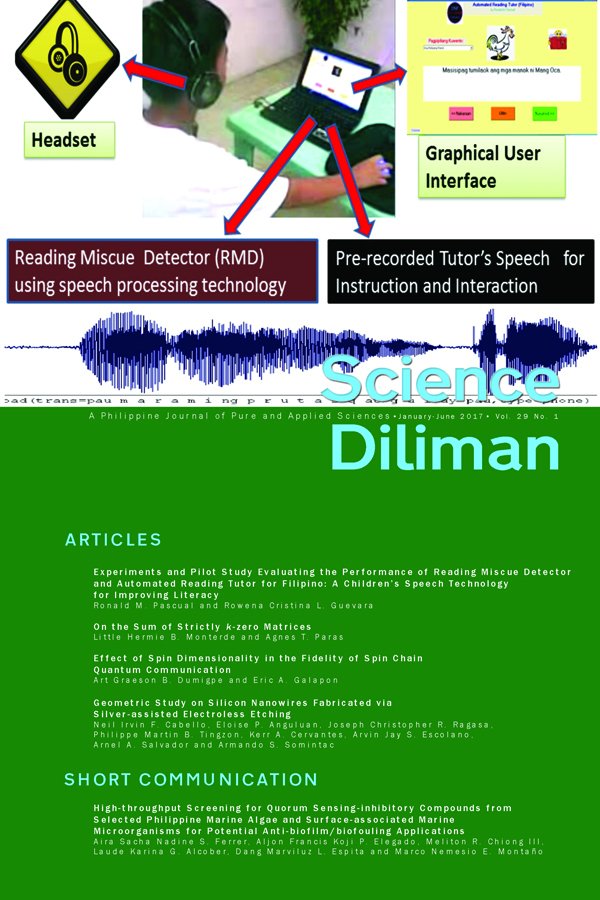Experiments and Pilot Study Evaluating the Performance of Reading Miscue Detector <br>and Automated Reading Tutor for Filipino: A Children's Speech Technology for Improving Literacy
Abstract
The latest advances in speech processing technology have allowed the development of automated reading tutors (ART) for improving children's literacy. An ART is a computer-assisted learning system based on oral reading fluency (ORF) instruction and automated speech recognition (ASR) technology. However, the design of an ART system is language-specif ic, and thus, requires developing a system specif ically for the Filipino language. In a previous work, the authors have presented the development of the children's Filipino speech corpus (CFSC) for the purpose of designing an ART in Filipino. In this paper, the authors present the evaluation of the ART in Filipino which integrates a reference verification (RV)- and word duration analysis-based reading miscue detector (RMD), a user interface, and a feedback and instruction set. The authors also present the performance evaluation of the RMD in offline tests, and the effectiveness of the ART as shown by the results of the intervention program, a month-long pilot study that involved the use of the ART by a small group of students. Offline test results show that the RMD's performance (i.e., FA rate ≈ 3% and MDerr rate ≈ 5%) is at par with those from state-of-the-art RMDs reported in the literature. The results of the ART intervention experiment showed that the students, on the average, have improved in their words correct per minute (WCPM) rate by 4.66 times, in their ORF-16 scores by 6.0 times, and in their reading comprehension exam scores by 4.4 times, after using the ART.
Keywords: Reading miscue detector, automated reading tutor, reference verif ication, word duration analysis, Filipino speech
and Automated Reading Tutor for Filipino: A Children's Speech Technology for Improving Literacy. Science Diliman: A Journal of Pure and Applied Sciences, [S.l.], v. 29, n. 1, june 2017. ISSN 2012-0818. Available at: <https://journals.upd.edu.ph/index.php/sciencediliman/article/view/5622>. Date accessed: 06 sep. 2025.



